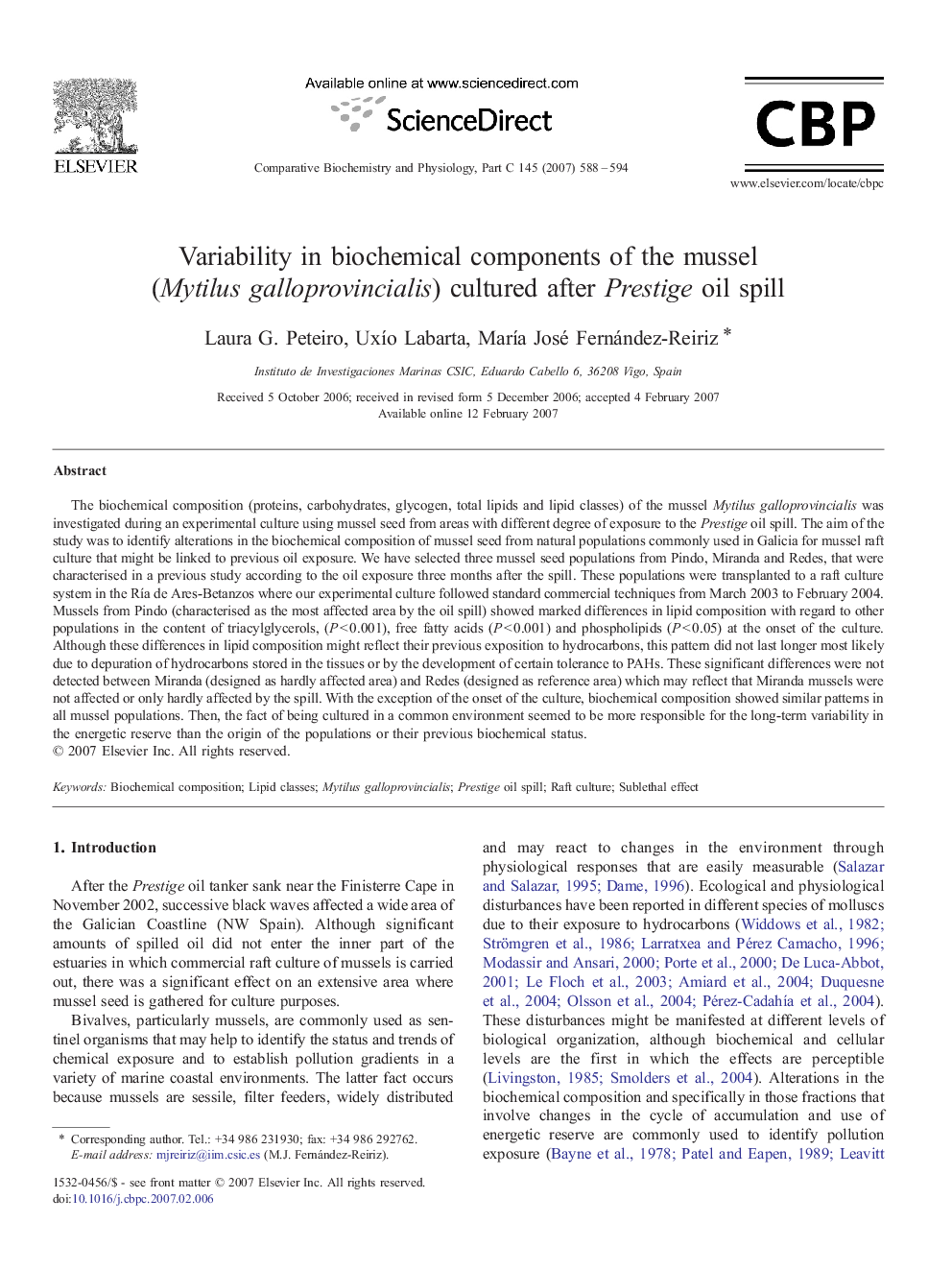| Article ID | Journal | Published Year | Pages | File Type |
|---|---|---|---|---|
| 1978247 | Comparative Biochemistry and Physiology Part C: Toxicology & Pharmacology | 2007 | 7 Pages |
Abstract
The biochemical composition (proteins, carbohydrates, glycogen, total lipids and lipid classes) of the mussel Mytilus galloprovincialis was investigated during an experimental culture using mussel seed from areas with different degree of exposure to the Prestige oil spill. The aim of the study was to identify alterations in the biochemical composition of mussel seed from natural populations commonly used in Galicia for mussel raft culture that might be linked to previous oil exposure. We have selected three mussel seed populations from Pindo, Miranda and Redes, that were characterised in a previous study according to the oil exposure three months after the spill. These populations were transplanted to a raft culture system in the RÃa de Ares-Betanzos where our experimental culture followed standard commercial techniques from March 2003 to February 2004. Mussels from Pindo (characterised as the most affected area by the oil spill) showed marked differences in lipid composition with regard to other populations in the content of triacylglycerols, (PÂ <Â 0.001), free fatty acids (PÂ <Â 0.001) and phospholipids (PÂ <Â 0.05) at the onset of the culture. Although these differences in lipid composition might reflect their previous exposition to hydrocarbons, this pattern did not last longer most likely due to depuration of hydrocarbons stored in the tissues or by the development of certain tolerance to PAHs. These significant differences were not detected between Miranda (designed as hardly affected area) and Redes (designed as reference area) which may reflect that Miranda mussels were not affected or only hardly affected by the spill. With the exception of the onset of the culture, biochemical composition showed similar patterns in all mussel populations. Then, the fact of being cultured in a common environment seemed to be more responsible for the long-term variability in the energetic reserve than the origin of the populations or their previous biochemical status.
Keywords
Related Topics
Life Sciences
Biochemistry, Genetics and Molecular Biology
Biochemistry
Authors
Laura G. Peteiro, UxÃo Labarta, MarÃa José Fernández-Reiriz,
